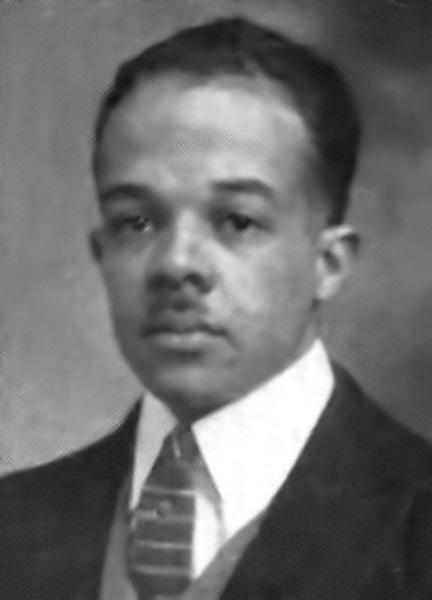Lee J. Purnell, 1921

Lee J. Purnell, MIT Class of 1921
Background
A profile of Lee Julian Purnell '21 would be incomplete without the story of his family’s role in the struggle for racial equality and intellectual achievement. Purnell came from a line of activists: his great-uncle William Whipper of Pennsylvania was an abolitionist; his grandfather James Whipper Purnell worked for the back-to-Africa movement and was part of John Brown’s 1858 convention the year before the raid on Harper’s Ferry; his father William Whipper Purnell was a leading black doctor in the San Francisco Bay area and taught at Howard University; and his mother Theodora Lee of Chicago was an organizer with the Red Cross and herself the granddaughter of a leading abolitionist.
At the Institute
Purnell was between 22 and 23 years old when he enrolled at MIT as a special student. He appears to have earned a B.S. degree in electrical engineering from MIT in just two years. His thesis was entitled “The unification of power at the Fore River Plant of the Bethlehem Shipbuilding Corporation by the use of alternating current equipment,” which he co-authored with Irving D. Marshall, Harold A. Tucker, and John B. Mattson. (At the time, Dallas Brown, Jr. ‘10 was still employed at the Fore River Shipyard, though no documentation has been found to confirm that Brown and Purnell crossed paths.)
MIT’s Class of 1921 sees the first case of two black students graduating from the Institute in the same year: Lee J. Purnell and Emmett “Scotty” Jay Scott, Jr. ‘21. Both the sons of prominent black leaders of the time, Purnell and Scott were listed in The Crisis that year, with Purnell described as “[w]ith a good record.”
After MIT
An electrical engineer, Purnell joined the faculty at Howard University, where he also served as Dean of the Engineering Department. He also established a successful engineering consulting firm in Washington, D.C. which specialized in plans and specifications for commercial and industrial buildings. Purnell served on the D.C. Board of Registration for Professional Engineers and was a member of Tau Beta Pi, an honorary electrical engineering society. In 1983, Purnell died at Howard University Hospital, where in his father had once made rounds.